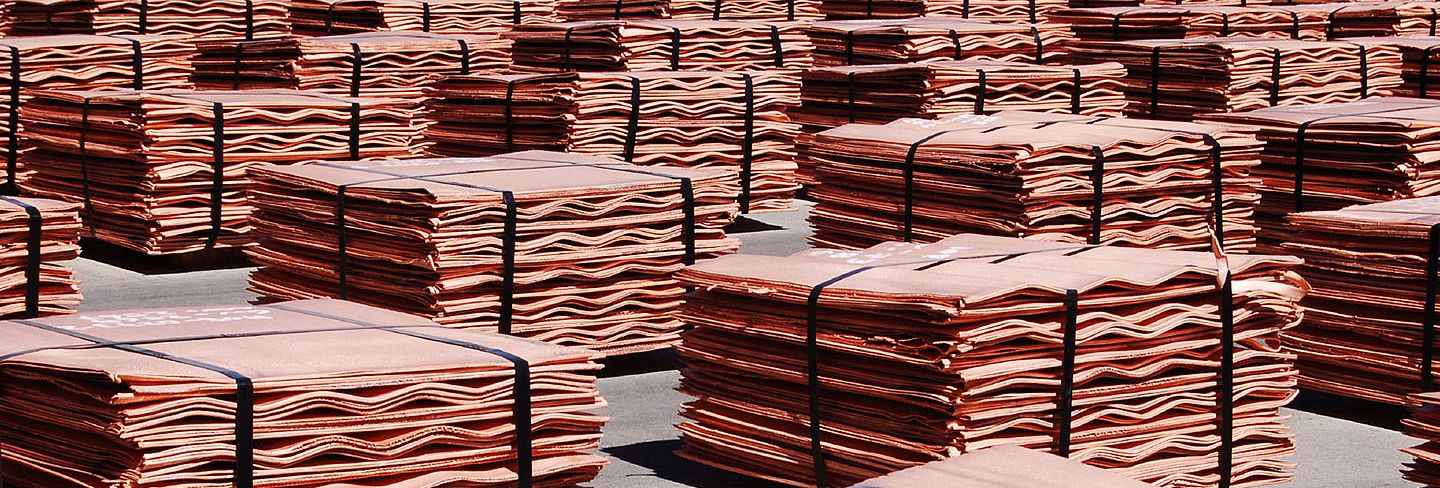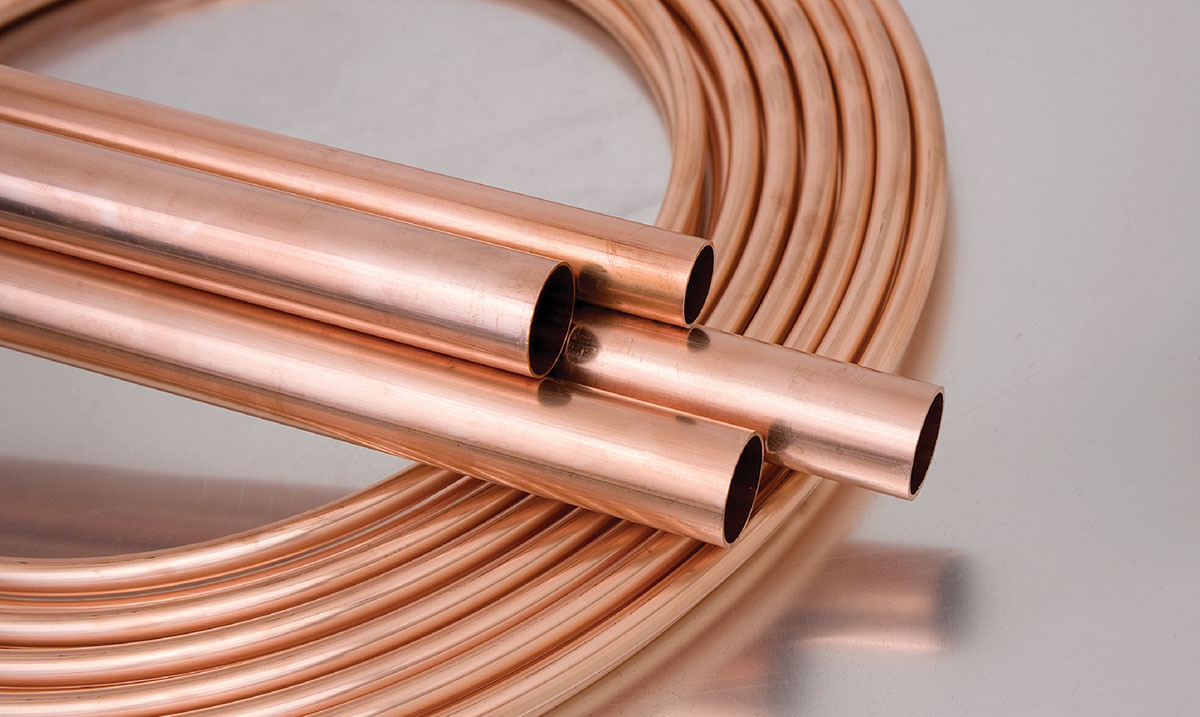Why Copper Products Are Important for Electrical Applications and Efficient Wiring
Why Copper Products Are Important for Electrical Applications and Efficient Wiring
Blog Article
Exploring the Diverse Applications of Copper Products in Modern Industries
From improving the performance of electric systems to playing an important function in renewable energy modern technologies, the versatility of copper is obvious. As sectors progressively focus on technology and sustainability, the varied applications of copper warrant a closer examination, especially concerning their prospective effect on future ecological techniques and technical developments.
Electric Applications of Copper
Copper is an important product in the electric industry, representing around 60% of the complete demand for non-ferrous metals around the world - Copper Products. Its remarkable electric conductivity, which is nearly twice that of light weight aluminum, makes it the favored selection for a large range of electrical applications. From wiring systems in industrial and household structures to high-voltage power transmission lines, copper makes sure efficiency and reliability in electrical energy shipment
In enhancement to electrical wiring, copper is integral to the manufacturing of electric parts such as transformers, electric motors, and generators. These components leverage copper's thermal conductivity and pliability, crucial for heat dissipation and effective performance. Copper's resistance to rust improves the lifespan and longevity of electrical systems, making it an economical service in the lengthy term.
The growth of renewable resource sources, such as solar and wind power, has actually even more enhanced the need for copper in electrical applications. As markets change towards sustainable energy remedies, copper's duty becomes a lot more important. In general, the convenience and performance features of copper solidify its standing as a keystone product within the electric sector, driving advancement and effectiveness across numerous applications.
Pipes and Piping Solutions
In contemporary pipes systems, the choice of products dramatically affects both performance and long life. Copper has become a favored alternative due to its special residential properties, consisting of corrosion resistance and antimicrobial characteristics. These characteristics make sure that copper piping continues to be risk-free and long lasting for transporting potable water, a vital factor to consider in domestic and business applications.
One of the vital advantages of copper in plumbing is its ability to stand up to heats and pressures, making it appropriate for a range of applications, from warm water systems to home heating and cooling networks. Furthermore, copper's adaptability enables for much easier setup in complicated piping layouts, lowering the danger of leaks and failures.
An additional noteworthy advantage is copper's long lifespan, commonly exceeding 50 years with proper maintenance. This longevity not only lessens substitute expenses but likewise adds to lasting practices by decreasing waste. Copper's recyclability straightens with modern ecological criteria, promoting a circular economic climate within the plumbing industry.
Copper in Renewable Resource
The convenience of copper expands beyond plumbing applications, playing a vital role in the renewable resource market. Its superb electrical and thermal conductivity makes it an essential product in the production and distribution of renewable resource sources, particularly solar and wind power. In photovoltaic panels, copper is utilized in photovoltaic cells and circuitry, assisting in reliable power conversion and transmission. Its resistance to corrosion guarantees more tips here durable efficiency, which is important for making the most of energy result with time.

In addition, as the international need for electrical lorries (EVs) rises, copper's duty in battery systems and billing framework comes to be much more substantial. The product's ability to carry read the article out electrical energy effectively is important to the performance of EV batteries, improving range and charging speed.
Copper's Function in Electronic devices
Electronics manufacturing relies greatly on copper's exceptional properties, particularly its high electric conductivity and thermal effectiveness. These qualities make copper an excellent choice for a large range of electronic components, consisting of adapters, circuit card, and electrical wiring. The metal's capacity to effectively transmit electric signals makes certain very little energy loss, which is crucial in high-performance digital gadgets.
In addition, copper's thermal conductivity plays a substantial role in warmth dissipation, securing sensitive components from overheating. This is especially vital in contemporary electronic devices, where small layouts cause raised heat generation. Copper is likewise favored for its pliability and ductility, allowing it to be quickly formed right into intricate styles that meet the demands of innovative electronic applications.
With the surge of customer electronic devices, telecoms, and electric cars, the need for copper in the electronics industry proceeds to expand. Hence, copper remains a cornerstone material in the ever-expanding area of electronic devices.
Innovative Uses in Manufacturing

One notable application remains in additive manufacturing, where copper-based products are utilized in 3D printing procedures. This enables for the creation of lightweight parts and complicated geometries, particularly in the aerospace and auto industries. In addition, copper's thermal conductivity makes it a suitable choice for warmth exchangers, boosting efficiency in industrial air conditioning systems.
Furthermore, the rise of clever manufacturing has actually seen the incorporation of copper in IoT gadgets, where its conductive capacities sustain innovative sensing modern technologies. In the realm of sustainable power, copper is critical in the manufacturing of photovoltaic panels and wind turbines, helping with extra efficient power conversion and circulation.
As industries pursue sustainability and advancement, copper's versatility and performance remain to place it as a critical material, driving developments in manufacturing and contributing to the advancement of smarter, extra efficient products.
Final Thought
In summary, copper products show remarkable adaptability throughout numerous modern-day industries. Copper Products. Their remarkable conductivity enhances electrical applications, while rust resistance makes sure integrity in pipes. The integral function of copper in eco-friendly energy and its necessary feature in electronic devices emphasize its relevance ahead of time sustainable methods. In addition, cutting-edge usages in producing emphasize copper's versatility and withstanding value. Collectively, these applications illustrate copper's crucial contribution to technological progress and commercial performance in modern culture.
From boosting the effectiveness of electric systems to playing an essential role in eco-friendly power technologies, the versatility of copper is noticeable. As markets progressively focus on development visit site and sustainability, the diverse applications of copper necessitate a closer assessment, particularly concerning their prospective effect on future technical developments and environmental techniques.
The growth of sustainable energy resources, such as solar and wind power, has additionally enhanced the need for copper in electrical applications. On the whole, the versatility and performance characteristics of copper strengthen its status as a foundation product within the electrical sector, driving innovation and effectiveness across different applications.
The convenience of copper prolongs past plumbing applications, playing an important role in the eco-friendly energy market.
Report this page